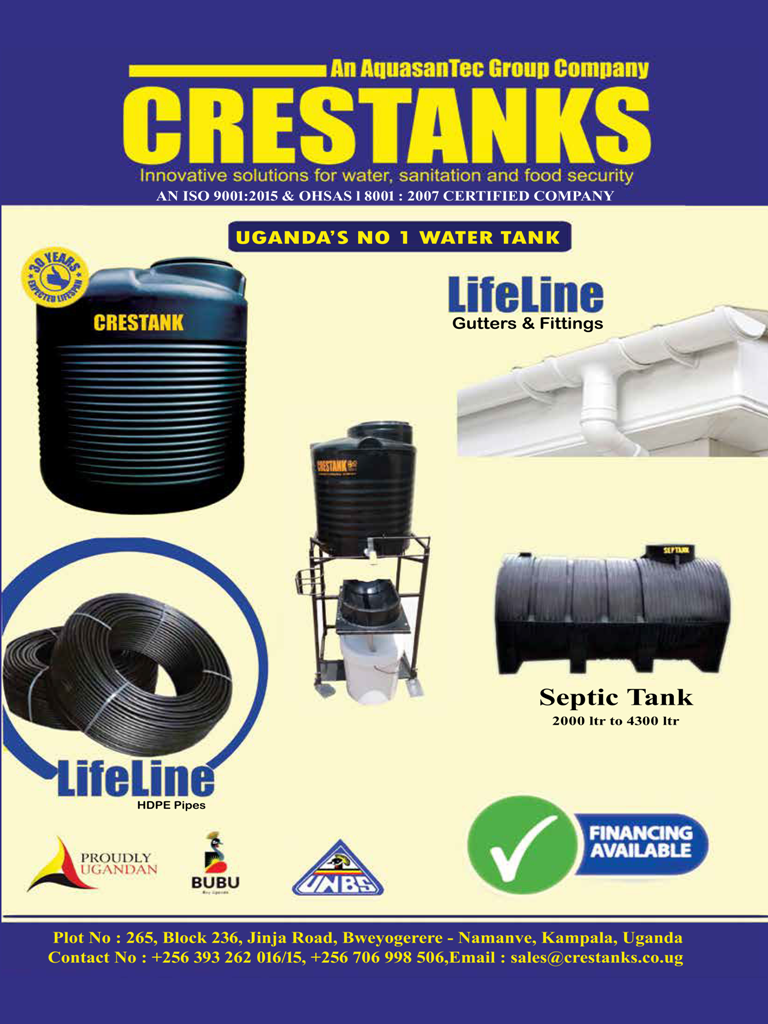BY FELIX BASIIME
BUNYANGABU – Bernard Kisembo is a peasant in Kyakahinda A village in Kibiito Town council in Bunyangabu district. For many years, his family’s grappled with high medical costs owing to diseases resulting from poor hygiene conditions at home.
“The filth was too much in my home and everyone would get sick every now and then with different diseases, especially diarrhoea,” he says.
Once he identified the problem courtesy of professional advice from Amref, Kisembo decided to address it by investing Shs800,000 into upgrading his family latrine from a facility with a mud and wattle floor and wall into improving his latrine to a washable one.
It was a massive venture in rural Uganda where most families live on less than Shs7,200 per day. However, according to Kisembo, he is repeating dividends from his investment in the form of a reduced family medication budget.
“I have saved money that I have been spending on hospitals until Amref came in our area with an idea of improved latrines,” Kisembo says.
According to Kisembo, he used to spend more than Shs 150,000 each month on treating his family members, but it now takes long spells before any of his dependants falls sick.
Amref Health Africa is one of the two non-profit organisations that are working jointly to improve pit latrines in 12,000 homesteads in the Rwenzori sub region through mind set change. The other is and Aqua for All.
According to Teo Namata, the Project Manager Amref Health Africa, they are doing this five-year project through the FINISH [Financial Inclusion Improves Sanitation and Health] model.
FINISH is an integrated hygiene improvement model used to scale up the use of better public health facilities in poor rural areas.
Lawrence Kiiza also lives in Kyakahinda A village. He too says he has registered positive results from using an improved latrine.
“I improved my latrine because our area used to be hit by several diseases caused by poor hygiene. I sold my matooke (green bananas) to improve my toilet with Shs 970,000 and I have now encouraged my neighbours to do the same,” he says.
According to Robert Mugisha, the Village Health Teams (VHTs) Coordinator for Rwimi Sub County, which is also Bunyangabu district, they have started making slabs for all toilets in Kajumiro A village that has 142 homes and their target is to achieve 100 per cent by May 2019.
“By May 2019, the entire village will have washable latrines. We encourage people to wash the slabs every morning with soap and water and to have a jerrycan of water and soap at every latrine,” Mugisha says.
Through the FINISH programme, Amref works with partners to contribute to the realization of the Sustainable Development Goals (SDG) three (Good Health and Well Being), SDG six (Clean water and sanitation) and SDG 17 (Partnerships for the Goals).
“Where the programme has covered so far, people are aware of the need for a safe and durable toilet,” Namata says.
In a bid to support Amref to achieve its objectives under the FINISH initiative, the government is also chipping in through regulating also standards, creating demand, monitoring progress and creating an enabling environment for the non-state actors to do their work.



















